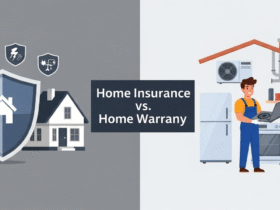Consider this: coming home after a long and exhausting day, only to find your laptop, gaming console, or smartphone missing. In today’s world, renters fear that. Indeed, it’s a nightmare scenario. Today, electronics go beyond being a mere gadget. They serve multifunctional roles as tools for communication, work, or even entertainment. But, what if the worst happens? How about your renters insurance policy? Would it cover your back with electronics theft?
Key Takeaways
- Usually, renters policies have a provision for covering lost electronics under the scope of personal property protection.
- Reimbursement amounts are susceptible to limits set on coverage, as well as deductibles.
- Additional endorsements could be made for electronics of high value.
- The vast majority of claims that are filed are for theft or specific damaging actions, not accidental damage.
- Submissions of evidence in conjunction with timely reporting are imperative for claim success.
Understanding Renters Insurance
It is critical to clarify the meaning of renters insurance and its coverages before delving into specifics.. Renters insurance covers personal property to a specific value within the premises that you rent. It is distinct from homeowners insurance which covers the asset structurally. Renters insurance is concerned only with possessions such as furniture, clothes, and electronics.
Key Components of Renters Insurance
- Personal Property Coverage: Ensures protection from theft and damages such as fire or vandalism.
- Liability Protection: Coverage for damages and/or injuries sustained by third parties due to your actions.
- Additional Living Expenses (ALE): Covers the costs for alternative accommodation temporarily if the rented premises is rendered temporarily uninhabitable due to a coverable insurance event.
Does Renters Insurance Cover Stolen Electronics?
The short response is yes, however there are critical distinctions to note.
What Is Covered?
The majority of renters insurance policies include protection for stolen electronics under personal property protection. As an example, if your laptop is taken from your apartment, or your smartphone is removed from your vehicle, your policy may cover the loss.
Coverage Limits and Deductibles
While coverage exists, it is likely not boundless. Policies frequently have coverage limits that cap the total amount reimbursed for personal property. For example, if your policy provides a limit of 10,000 for personal property, and you hold electronics worth 3,000, you would be reimbursed up to that amount, minus any deductible.
Speaking of deductible, this is the amount you will pay out of pocket before your insurance pays anything. In case your deductible is 500 and valued electronic sat 3,000 , then your insurer reimbursement will be $2,500.
High-Value Electronics
Coverage for items such as professional cameras, custom gaming PCs, and premium audio equipment significantly surpasses the limit provided by a standard renters insurance policy. Standard insurance policies often limit payouts for electronic gadgets to a maximum of $1,500 to $2,500 per item. To achieve full coverage, you may add a scheduled personal property endorsement which facilitates the listing of designated high-value items to be insured at their appraised value.
What Is Not Covered Under Renters Insurance?
Your insurance policy will safeguard you against numerous potential risks; however, in the event that you incur damages or face losses, not every type of insurance will assist you. As with most types of insurance, you are faced with a variety of scenarios under renters insurance too which might not be covered under the chosen policy – which, keeping in mind, if you have any special provisions granted in your policy may exclude these cases.
It would be far too easy to make the argument that anyone with an average understanding of day-to-day technology would know better than to leave expensive gadgets unsupervised in public spaces where it might incur unsolicited attention and pedestrians might gratuitously trespass into personal property. I’d beg to differ instead and claim that modern day consumers are continuously made targets of advertisement which control their behavior and influence them to act in a way which conforms to social norms instead of allowing them to act freely.
Accidental Damage Isn’t Their Problem
Be it misplaced hp laptops or expensive mouse pads, insurance lapses due to sheer negligence is far too common. Despite all measures one might devise to track and control possessions unexpectedly vanishing does indeed occur. The classic case of flying mac books is an example of how easy it is to get your device damaged instead of help coming via insurance.
The comprehensive coverage offered by renters insurance is focused on protecting property against specific risks. It won’t protect your belongings from accidents such as dropping them. For such cases, you might have to consider separate protection plans designed for the item or an extended warranty.
Misplacing Things Isn’t Considered Theft
Most of us have left a phone on the table in a coffee shop or headphones on a plane as we walked away. Losing a possession is wounding, akin to theft, however, your insurer doesn’t categorize loss in that manner. In most cases, if there is insufficient evidence to support a claim of theft, your claim is very likely to be rejected.
So when folks approach me with questions like, “Am I entitled to a claim if my tablet was in an Uber?” I have to answer in a nice manner, no —such scenarios are out of the purview of renters insurance. Insurance companies operate on the maxim “no proof, no claim.” During instances of damages, they require police records, evidence such as shattered windows or doors, and grounded documentation of forcible intrusion. However, forgetfulness? No evidence supporting a claim.
Some Damage Isn’t Covered — Even If It’s Not Your Fault
Electric and electronic devices are protected from electricity generated surges; however, such electronic damages are not recoverable unless the damages are through a certain type of lightning surge. Furthermore, no insurance in the entire universe would ever protect you from natural disasters such as earthquakes, floods or even tsunamis.
One of my close friends had been through this a couple of years back when an earthquake of low intensity destroyed huge number of electronics in his apartment.
Since his apartment wasn’t located anywhere near any water body (or dam or any kind of water source), he never opted for a flood cover. Thus, without the proper policy attached, no help could be provided. This is precisely why reading these documents in legal font size can save you from wasting huge amounts of money later on.
How to File a Claim for Stolen Electronics
Now, let us proceed with the most unfortunate of circumstances. A burglary has happened in your house. Your laptop is missing. Your camera is also missing. I understand that your heart is racing and you want to remain composed during this chaos. How could anyone stay calm during such turmoil?
Please allow me to guide you through it step by step, as though we are friends who are spending time over a cup of coffee.
Start With the Police Report — Always
Your first call should be to the police. Yes, get the police involved. It might seem dramatic, but believe me when I say no insurance company would process your claim without a police report. This provides proof for your claim and credibility to the investigation. This is also your legal proof stating that a theft happened. Ensure to obtain a copy of the report or at the least the case number.
Get Your Documents in Order
After a certain period of acceptance, proof in form of documentation is now required. To smoothen this process, having photographs, receipts and the devices’ serial numbers will aid significantly. Smooth process further lies in having registered electronics and stored receipts, functions as evidence, aids in fortifying claim.
Storing documents such as the Amazon receipts in Emails facilitates retrieval, which in turn aids creating smoother procedures. Proving documents in such cases truly assist in easing stressful situations.
Call Your Insurance Provider
Insurance firms have, “set later dates” as invalid and require direct interaction. To streamline processes, set claims now exist for online filing. However, interaction to explain bodily incurred damages, with a human is helpful. Prepare to give police report numbers alongside answering questions revolving estimates/unnecessary querying concerning worth.
Stripped of details, blunt honesty aids in feeling, while being frank with added specifics helps claim validation. Claims handed in are, “stored” to be verified, thus avoid presenting fiction.
Follow Up Without Stressing Out
Once you’ve submitted your documents, there is nothing else to do apart from waiting. Some claims may be processed instantly while others may require waiting weeks to be processed, particularly with high-value electronics. If your insurance company requires more information, make sure that you submit the response as quickly as you can. Following up professionally, without sounding too desperate, can ensure progress is maintained.
Preventing Theft of Electronics (Before You Ever Need a Claim)
Claiming an insurance policy is a lot of hustle, filing forms and submitting documents to prove a loss, and that’s the last thing I want to do – it’s all excruciating work and mentally exhausting. This meaning you had to incur some damages already. Assumably your apartment contains some sort of technological devices or prized possessions, making it a target for burglars. In this case here is an advice that could use an extra ounce of mental strength, but can certainly help renters, tech enthusiasts or everyone in general.
Treat Your Devices Like They’re Irreplaceable
Throwing your information on the market is something almost no one desires spotting. Therefore always take precautionary measures by ensuring passwords are always secured, windows are closed and locks are in order. Always adhering to basics like closing blinds coupled with not leaving electronics in situ to windows can do wonders. A shining beacon sign towards freshly vacant desks with gleaming laptops awaiting their new owners.
Upgrade Your Security Setup
You cannot move your laptop beyond a window closed, but the use of contactless doors paired with smart video cameras within discipline are deemed reliable for securing Fort Knox as whomever is interested seizing rather protecting can be tracked. Simple tools work effectively, and are budget friendly while simultaneously securing spaces devoid people. And even having a miniature camera near the main entrances can be indispensable.
Travel Smarter With Your Tech
Try to maintain possession of your personal electronic devices, even when you are at a library or in a café or at an airport. Phones and laptops have become inseparable parts of our lives. Steer clear of even the shortest of short walks, as every second counts when it comes to protecting your valuables.
Nowadays, the most reliable advice I can give you is to get an online inventory of your electronics and to do it today. For this task, a simple Google Doc or Excel file will do. Outline the devices you own along with their make and model, serial number, purchase price, and place of purchase. If possible, add some pictures too. Wish to thank yourself later? Proactive towards your possessions pays off when things don’t head your way.
My Opinion| Stay Ready, Stay Protected
Renters insurance can absolutely cover your stolen electronics which is a great news for the user. One needs to have a keen eye towards the details as well, because concealment is also a significant attribute of the policy and knowing what is not included can somehow draw the line towards logical reasoning.
This goes beyond a mere policy—it’s about being a savvy renter. You, dear user, do have the ability to protect your technology. Understand your policy. Raise queries. And if it doesn’t provide the assurance you seek, discuss added protection with your insurer. Seeking more coverage in this digital age is perfectly reasonable.
Ultimately, it is not solely about covering the expenses incurred; it’s about the sense of security, readiness, and substantial backing offered during unexpected situations.






























Leave a Reply